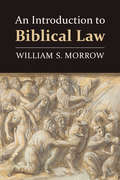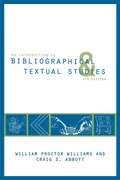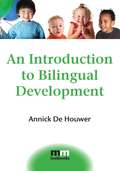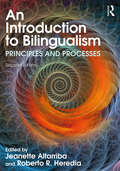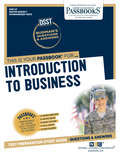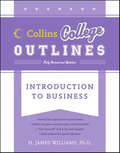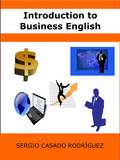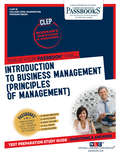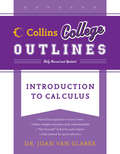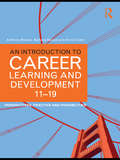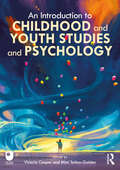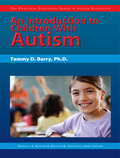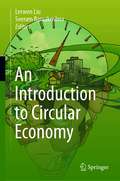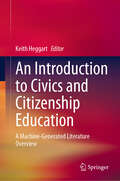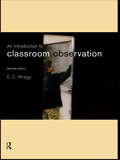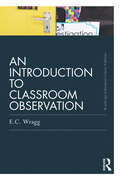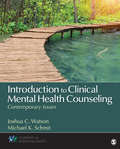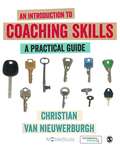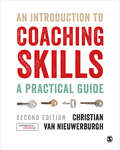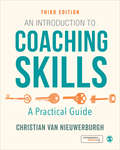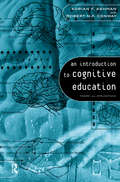- Table View
- List View
An Introduction to Biblical Law
by William S. MorrowInformed, accessible textbook on law collections in the Pentateuch In this book William Morrow surveys four major law collections in Exodus–Deuteronomy and shows how they each enabled the people of Israel to create and sustain a community of faith. Treating biblical law as dynamic systems of thought facilitating ancient Israel's efforts at self-definition, Morrow describes four different social contexts that gave rise to biblical law: (1) Israel at the holy mountain (the Ten Commandments); (2) Israel in the village assembly (Exodus 20:22–23:19); (3) Israel in the courts of the Lord (priestly and holiness rules in Exodus, Leviticus, and Numbers); and (4) Israel in the city (Deuteronomy). Including forthright discussion of such controversial subjects as slavery, revenge, gender inequality, religious intolerance, and contradictions between bodies of biblical law, Morrow's study will help students and other serious readers make sense out of texts in the Pentateuch that are often seen as obscure.
An Introduction to Bibliographical and Textual Studies
by Craig S. Abbott William Proctor WilliamsTo a reader of Joyce's Ulysses, it makes a difference whether one of Stephen Dedalus's first thoughts is "No mother" (as in the printed version) or "No, mother!" (as in the manuscript). The scholarship surrounding such textual differences--and why this discipline should concern readers and literary scholars alike--is the focus of William Proctor Williams and Craig S. Abbott's acclaimed handbook.This updated, fourth edition outlines the study of texts' composition, revision, physical embodiments, process of transmission, and manner of reception; describes how new technologies such as digital imaging and electronic tagging have changed the way we produce, read, preserve, and research texts; discusses why these matters are central to a historical understanding of literature; and shows how the insights, methods, and products of bibliographical and textual studies can be applied to other branches of scholarship.
An Introduction to Bilingual Development
by Annick De HouwerIncreasingly, children grow up hearing two languages from birth. This introductory textbook shows how children learn to understand and speak those languages against the backdrop of their language learning environments. A narrative around the bilingual development of four young children with different language profiles helps to explain the latest research findings in a lively and accessible manner. The narrative describes how bilingually raised children learn to understand and use sounds, words and sentences in two languages, and how they are able to use each of their languages in socially appropriate ways. Positive attitudes towards bilingual development from the people in bilingual children's environments and their recognition that child bilingualism is not monolingualism-times-two are the main ingredients ensuring that children grow up to be happy and expert speakers of two languages.
An Introduction to Bilingualism: Principles and Processes
by Jeanette Altarriba and Roberto R. HerediaThe study of bilingualism and all of its aspects – from theory and models to social approaches and their practical applications – forms the cornerstone of the 2nd edition of this work. The chapters cover the latest advancements in the domains of psycholinguistics, neuroscience, creativity, and executive functioning. Contributions, new to this edition, offer the reader the most up-to-date research on lifespan and developmental issues. The work also provides insight into how human language is processed by all, not just by bilingual and multilingual speakers.This text is ideal for senior undergraduate and graduate courses in psycholinguistics and the psychology of language, especially those with an emphasis on bilingualism or second language learning.
INTRODUCTION TO BUSINESS: Passbooks Study Guide (DANTES Subject Standardized Tests (DSST) #Dantes-21)
by National Learning CorporationThe DSST Subject Standardized Tests are comprehensive college and graduate level examinations given by the Armed Forces, colleges and graduate schools. These exams enable students to earn college credit for what they have learned through self-study, on the job, or by other non-traditional means. The DSST Introduction to Business Passbook® prepares candidates for the DSST exam, which enables schools to award credit for knowledge acquired outside the normal classroom environment. It provides hundreds of questions and answers in the areas that will likely be covered on your upcoming exam, including but not limited to: forms of business ownership; management; human resources; marketing; financial management; risk and insurance; and more.
Introduction to Business (Collins College Outlines)
by H. James WilliamsThe Collins College Outline for Introduction to Business provides students with a detailed overview of the basic business studies curriculum. This guide covers business foundations, the global economy, company structure and formation, personnel and production management, labor-management relations, marketing concepts and logistics, statistical analysis, financial strategies, careers in business, and much more. Completely revised and updated by Dr. H. James Williams, Introduction to Business includes practical "test yourself" sections with answers and complete explanations at the end of each chapter. Also included are bibliographies for further reading, as well as charts, graphs, and illustrations.The Collins College Outlines are a completely revised, in-depth series of study guides for all areas of study, including the Humanities, Social Sciences, Mathematics, Science, Language, History, and Business. Featuring the most up-to-date information, each book is written by a seasoned professor in the field and focuses on a simplified and general overview of the subject for college students and, where appropriate, Advanced Placement students. Each Collins College Outline is fully integrated with the major curriculum for its subject and is a perfect supplement for any standard textbook.
Introduction to Business English (Words and Their Secrets)
by Sergio Casado RodríguezAn ebook designed for those who are interested in perfecting their English, and introducing some of the essential variants, such as English used for business or Business English.
INTRODUCTION TO BUSINESS MANAGEMENT: Passbooks Study Guide (College Level Examination Program Series (CLEP))
by National Learning CorporationThe College Level Examination Program (CLEP) enables students to demonstrate college-level achievement and earn college credit in various subject areas based on knowledge acquired through self-study, high school and adult courses, or through professional means. The CLEP Introduction to Business Management Passbook® prepares you by sharpening knowledge of the skills and concepts necessary to succeed on the upcoming exam and the college courses that follow. It provides a series of informational texts as well as hundreds of questions and answers in the areas that will likely be covered on your upcoming exam, including but not limited to: personnel administration; quality control; inventory; business planning, organization, leadership and structure; and more.
Introduction to Calculus
by Joan Van GlabekMaster Your Coursework with Collins College Outlines The Collins College Outline for Introduion to Calculus tackles such topics as funions, limits, continuity, derivatives and their applications, and integrals and their applications. This guide is an indispensable aid to helping make the complex theories of calculus understandable. Completely revised and updated by Dr. Joan Van Glabek, this book includes a test yourself seion with answers and complete explanations at the end of each chapter. Also included are bibliographies for further reading, as well as numerous graphs, charts, illustrations, and examples. The Collins College Outlines are a completely revised, in-depth series of study guides for all areas of study, including the Humanities, Social Sciences, Mathematics, Science, Language, History, and Business. Featuring the most up-to-date information, each book is written by a seasoned professor in the field and focuses on a simplified and general overview of the subje for college students and, where appropriate, Advanced Placement students. Each Collins College Outline is fully integrated with the major curriculum for its subje and is a perfe supplement for any standard textbook.
An Introduction to Career Learning & Development 11-19: Perspectives, Practice and Possibilities
by Anthony Barnes Barbara Bassot Anne ChantAn Introduction to Career Learning and Development 11-19 is an indispensible source of support and guidance for all those who need to know why and how career learning and development should be planned, developed and delivered effectively to meet the needs of young people. It is a comprehensive resource providing a framework for career education conducive with the realities of lifelong learning, enterprise, flexibility and resilience in a dynamic world. It discusses the key under-pinning theory and policies and provides straight-forward, practical advice for students and practising professionals. Experts in the field provide essential guidance on: development and leadership of career education strategies in school planning and implementing career learning activities in the curriculum collaborative working and engagement between schools, colleges and Connexions services, as well as with parents, community and business organisations key organisations and where to find useful resources effective teaching and learning - active, participative and experiential learning approaches issues of ethics, values, equality and diversity guidance on self-evaluation, making the most of inspection, and quality standards and awards. An Introduction to Career Learning and Development 11-19 is an invaluable guide for teachers, teaching support staff, careers guidance professionals and all other partners in the delivery of CEIAG who wish to enhance their understanding of current and emerging practice and provide support that can really make a difference to young people’s lives.?
Introduction to Catholicism: A Complete Course (2nd Edition)
by James SociasIntroduction to Catholicism, 2nd Edition, contains the same Catholic teaching found in the popular original textbook, with expanded topics. Based on the Catechism of the Catholic Church, this text covers the basic tenets of the Faith and what it means to be Catholic; to include an additional 200+ pages, a new design layout, and additional pieces of full-color liturgical art. Topics include: The Holy Catholic Church The Blessed Trinity The Paschal Mystery The Blessed Virgin Mary The Sacraments and Prayer Christian Morality and the Universal Call to Holiness New chapter on Social Doctrine This textbook is published with ecclesiastical approval from the Archdiocese of Chicago.
An Introduction to Childhood and Youth Studies and Psychology
by Victoria Cooper Mimi Tatlow-GoldenThis exciting new book provides a novel interdisciplinary introduction to Childhood and Youth Studies and Psychology. Its accessible approach illuminates holistic understandings of children and young people’s lives by drawing from multiple disciplines and theoretical frameworks and wide-ranging research examples, including case studies from around the world, featuring children and young people’s perspectives throughout. Weaving insights from education and cultural studies, social anthropology, and sociology with social, cultural, and developmental psychology, it covers children and young people’s experiences and development from infancy to young adulthood (0–23 years) and their rights. Chapters explore key contemporary topics such as the following: - Digital childhood and youth - Children’s embodied experiences - The social and cultural origins of selves - Diverse families - Race and ethnicity - Global childhoods - Models for understanding health and disability - Children’s rights and agency - Gender in childhood and youth An essential reading for students on childhood and youth, psychology, and education courses, An Introduction to Childhood and Youth Studies and Psychology is also a valuable introductory resource for practitioners working with children and young people and for parents and policy makers with an interest in how we understand children and young people’s lives today.
An Introduction to Children With Autism
by Tammy D. BarryThis new series offers timesaving books on critical topics for educating students with autism spectrum disorders. The four books in this series are filled with practical information and advice, thus making them an ideal resource for classroom teachers, preservice teachers, and graduate students. This introductory text in the series provides an overview of the characteristics of children with autism, the symptoms associated with autism, and the general nature of autism. An explanation of the autism spectrum and the culture of autism also are presented.
An Introduction to Circular Economy
by Seeram Ramakrishna Lerwen LiuThis book is purposefully styled as an introductory textbook on circular economy (CE) for the benefit of educators and students of universities. It provides comprehensive knowledge exemplified by practices from policy, education, R&D, innovation, design, production, waste management, business and financing around the world. The book covers sectors such as agriculture/food, packaging materials, build environment, textile, energy, and mobility to inspire the growth of circular business transformation. It aims to stimulate action among different stakeholders to drive CE transformation. It elaborates critical driving forces of CE including digital technologies; restorative innovations; business opportunities & sustainable business model; financing instruments, regulation & assessment and experiential education programs. It connects a CE transformation for reaching the SDGs2030 and highlights youth leadership and entrepreneurship at all levels in driving the sustainability transformation.
An Introduction to Civics and Citizenship Education: A Machine-Generated Literature Overview
by Keith HeggartThis book serves as a starting point for pre-service teachers and researchers by providing a concise and thorough summary of key themes within the field of civics and citizenship education. The field of civics and citizenship education is both complex and contested in local and international jurisdictions. It is also a key site for political and policy interventions by governments and other interested parties. While this activity makes the field a vibrant one, it also means that it can be challenging for teachers and researchers to enter and understand the ongoing debates and discussions and the implications these present for their research and educational practice. The book begins with a detailed examination of the history of civics and citizenship education from a variety of perspectives and in different locations. It recognizes and documents how the place and importance of civics and citizenship education has changed over the last century and how this has been realized in various educational initiatives. It also examines the current state of educational and policy-level initiatives in civics and citizenship education, noting the differences between different state and country approaches. This book also undertakes a detailed consideration of the different typologies of civics and citizenship education that have been formulated by various researchers, including notions like justice-oriented citizenship, activist citizenship, and critical citizenship. It examines the theoretical foundations of both active citizenship education and global citizenship education and how these have been enacted in school settings. Furthermore, it examines the place of citizenship in higher education institutions and non-formal educational settings, including practices and statements about the importance of developing global citizenship in these arenas. It also presents a number of different case studies showcasing the variety of approaches to civics and citizenship education and discusses the opportunities and challenges educators and researchers face when researching and implementing it.
An Introduction to Classroom Observation
by Ted WraggThe first edition of this book was a bestseller, and is generally regarded as the most widely used and authoritative text on this topic. This completely revised and updated second edition takes into account the latest changes in educational practice, and includes coverage of recent developments in teacher appraisal and school inspection procedures. Ted Wragg is an international expert on research into teaching and learning, but has always been someone who writes with the teacher in mind. Using a combination of case studies, photographs and illustrations, Wragg shows how various people study lessons for different purposes and in different contexts. He explains a number of approaches in clear language and gives examples of successful methods that have been employed by teachers, student teachers, researchers and pupils. This is an essential text for anyone serious about becoming a good teacher or researcher in education.
An Introduction to Classroom Observation (Classic Edition)
by Ted WraggHow does classroom observation support your professional development? How can you observe as effectively as possible? Highly regarded as one of the most widely used and authoritative texts on this topic, An Introduction to Classroom Observation is an essential text for anyone serious about becoming a good teacher or researcher in education. Now part of the Routledge Education Classic Edition Series, E.C. Wragg’s straightforward guide includes a combination of case studies, photographs and illustrations to show how various people study lessons for different purposes and in different contexts. It outlines a range of approaches in clear language and gives examples of successful methods that have been employed by teachers, student teachers, researchers and pupils. With a new preface from Professor Richard Pring, the classic edition of this indispensible text is for a new generation of education professionals serious about becoming good teachers and researchers.
Introduction to Clinical Mental Health Counseling: Contemporary Issues (Counseling and Professional Identity)
by Michael K. Schmit Joshua WatsonIntroduction to Clinical Mental Health Counseling presents a broad overview of the field of clinical mental health and provides students with the knowledge and skills to successfully put theory into practice in real-world settings. Drawing from their experience as clinicians, authors Joshua C. Watson and Michael K. Schmit cover the foundations of clinical mental health counseling along with current issues, trends, and population-specific considerations. The text introduces students to emerging paradigms in the field such as mindfulness, behavioral medicine, neuroscience, recovery-oriented care, provider care, person-centered treatment planning, and holistic wellness, while emphasizing the importance of selecting evidence-based practices appropriate for specific clients, issues, and settings. Aligned with 2016 CACREP Standards and offering practical activities and case examples, the text will prepare future counselors for the realities of clinical practice.
Introduction to Clinical Mental Health Counseling: Contemporary Issues (Counseling and Professional Identity)
by Michael K. Schmit Joshua WatsonIntroduction to Clinical Mental Health Counseling presents a broad overview of the field of clinical mental health and provides students with the knowledge and skills to successfully put theory into practice in real-world settings. Drawing from their experience as clinicians, authors Joshua C. Watson and Michael K. Schmit cover the foundations of clinical mental health counseling along with current issues, trends, and population-specific considerations. The text introduces students to emerging paradigms in the field such as mindfulness, behavioral medicine, neuroscience, recovery-oriented care, provider care, person-centered treatment planning, and holistic wellness, while emphasizing the importance of selecting evidence-based practices appropriate for specific clients, issues, and settings. Aligned with 2016 CACREP Standards and offering practical activities and case examples, the text will prepare future counselors for the realities of clinical practice.
An Introduction to Coaching Skills
by Christian Van NieuwerburghAn Introduction to Coaching Skills is an invaluable resource for novice and trainee coaches. Its accessible, step-by-step style acquaints you with the key skills needed to become a successful coach and, with its focus on the applied side of coaching, the book is an essential text for anyone starting out on their coaching voyage. From the 'how to', through to practicalities and challenges and honing existing skills, this book covers: - Definitions of coaching - How to become a coach - Key coaching skills - Current coaching models - Practical tools and techniques - Reflective practise and how best to help others With evidence-based research, activities and suggestions for further reading, this is a clear and practical, all-you-need guide to becoming a coach.
An Introduction to Coaching Skills: A Practical Guide
by Dr Christian Van NieuwerburghThis text is an invaluable resource for novice and trainee coaches. Its accessible, step-by-step style acquaints you with the key skills needed to become a successful coach. It takes you from the 'how to', through to practicalities and challenges, and beyond to the continued development of your skills. There is even more packed into the new edition, with: over 70 videos of real coaching; including two full length sessions for you to engage with a closer look at coaching processes and models to support your understanding new activities (including templates to download) to try with clients stories from practice to give context to the skills being discussed. A world-wide success, this is a stimulating, inspiring and hugely practical book that you’ll come back to time and time again.
An Introduction to Coaching Skills: A Practical Guide
by Dr Christian Van NieuwerburghThis text is an invaluable resource for novice and trainee coaches. Its accessible, step-by-step style acquaints you with the key skills needed to become a successful coach. It takes you from the 'how to', through to practicalities and challenges, and beyond to the continued development of your skills. There is even more packed into the new edition, with: over 70 videos of real coaching; including two full length sessions for you to engage with a closer look at coaching processes and models to support your understanding new activities (including templates to download) to try with clients stories from practice to give context to the skills being discussed. A world-wide success, this is a stimulating, inspiring and hugely practical book that you’ll come back to time and time again.
An Introduction to Coaching Skills: A Practical Guide
by Dr. Christian van NieuwerburghThis bestselling book introduces you step-by-step to the key skills needed to become a successful coach. Supported by an Online Resource site with over 70 videos of coaching in action, this practical book will be an invaluable resource for novices and trainee coaches. To access the exclusive SAGE Videos, please see the code on the inside front cover of your textbook and click on &“Login&” above. If you have purchased the eBook from Amazon or another online retailer, please email UK.DigitalContent DigitalContent@sagepub.co.uk> with the subject line &“Access Code Required&” and we will assist further.
An Introduction to Coaching Skills: A Practical Guide
by Dr. Christian van NieuwerburghThis bestselling book introduces you step-by-step to the key skills needed to become a successful coach. Supported by an Online Resource site with over 70 videos of coaching in action, this practical book will be an invaluable resource for novices and trainee coaches. To access the exclusive SAGE Videos, please see the code on the inside front cover of your textbook and click on &“Login&” above. If you have purchased the eBook from Amazon or another online retailer, please email UK.DigitalContent DigitalContent@sagepub.co.uk> with the subject line &“Access Code Required&” and we will assist further.
An Introduction to Cognitive Education: Theory and Applications
by Adrian Ashman Robert ConwayThis book provides an accessible introduction to the field of cognitive education. It explains the concepts commonly found in the cognitive psychology and cognitive education literatures, theories and models of human thinking and intelligent behavior, and how these have been applied to psychoeducational assessment, instruction, and the adaption of student behavior. The book includes numerous examples to explain the concepts, theories, and applications, and includes supplementary reading lists and study questions.
